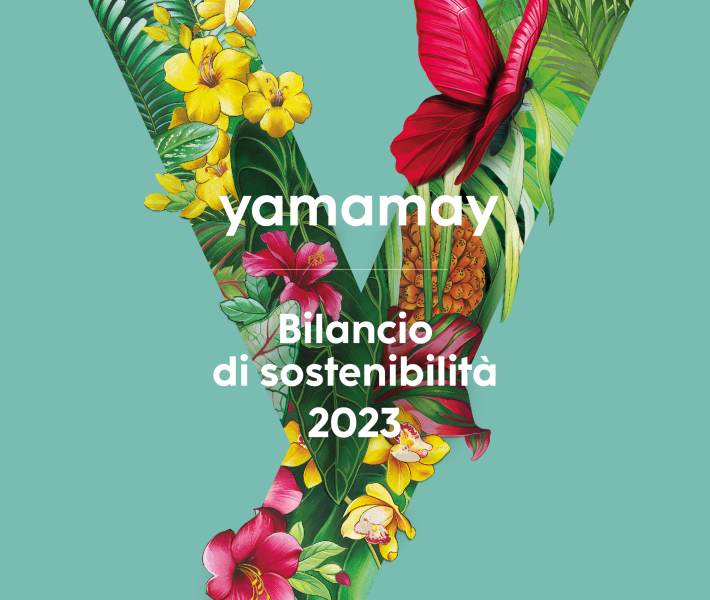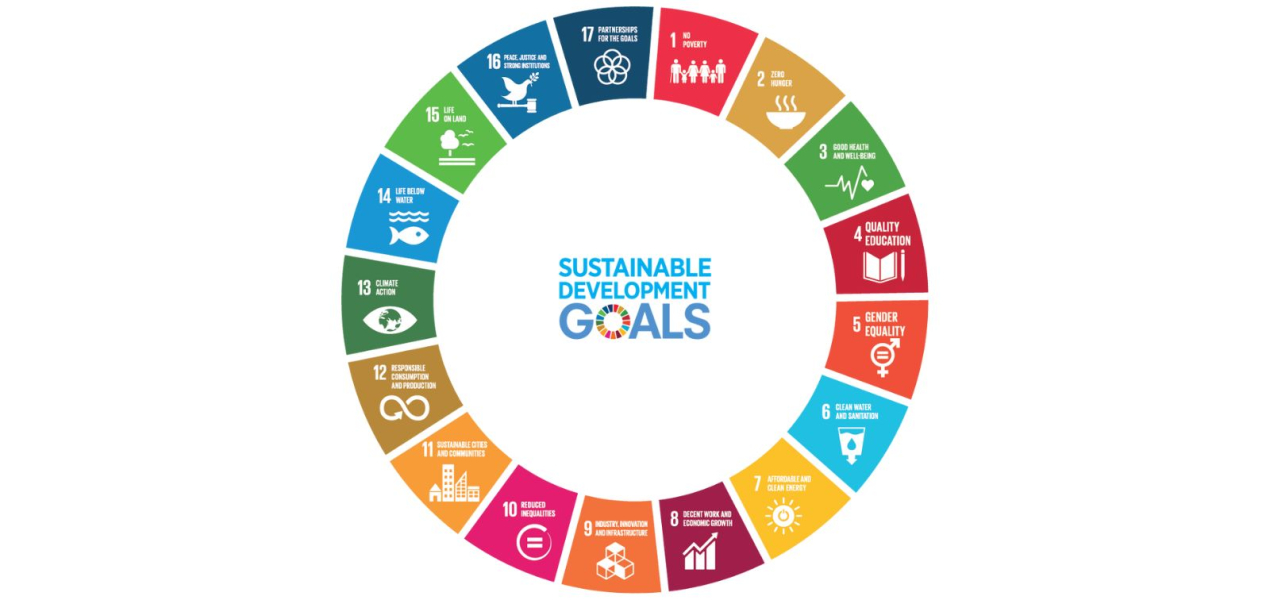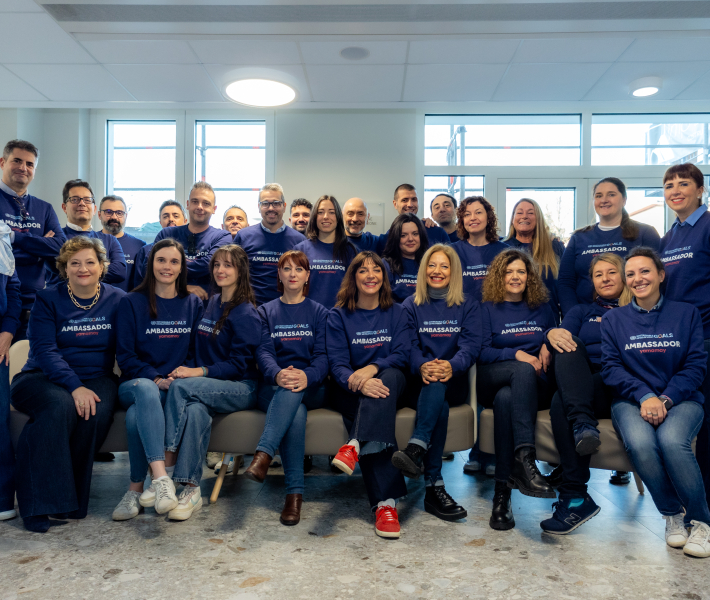Our direction
We have already defined our path towards a sustainable identity in line with the UN’s 2030 Agenda for Sustainable Development, and our vision. Our strategy is focused on leveraging and intervening on all aspects that in our opinion generate value: from the supply chain to the use of eco-sustainable raw materials; from the choice of suppliers that share our principles and values to a training path that accompanies our collaborators towards a type of growth that is human-centric and professional.

The Sustainability Report 2023

Sustainability Bits
In collaboration with Confimprese and ASVIS, we have produced videoshorts to raiseawareness and engage our customers and collaborators in contributing to a moresustainableworld.

Our sustainability Ambassadors
A team of 25 reporting representatives from various Yamamay departments forms our sustainability governance. They embody our commitment to enhancing positive impacts on the environment and society.
The Sustainability Balanced Scorecard
We have launched a project focused on the development of a Sustainability Balanced Scorecard, a strategic management system that aims to provide additional support in the implementation of the corporate strategy linked to CSR and awareness of the environmental impacts of our actions. The goal is to shift management’s attention from the results, focusing instead on the causes that determine the same results, to anticipate the most significant developments in the external environment, quickly adapting business processes through the continuous updating of the most important business KPIs.

“Sustainability is decisive for the value we want to generate.”
Barbara Cimmino, Head of CSR and Innovation in Yamamay
Yamamay’s stakeholders
At Yamamay, we pay close attention to the participatory dialogue between the company and its supporters, in an effort to strengthen the relationship with stakeholders to make the exchange of ideas increasingly more authentic.
According to the principles defined by the “AA1000 Stakeholder Engagement Standard”, we have identified 11 categories of stakeholders who are able to influence our business decisions and the achievement of our corporate objectives.
Consumers and customers
Direct communication on topics related to inclusivity, gender equality and the environment, also through online and offline communication campaigns and the experiences of our influencers.
Employees and their representatives
Training courses dedicated to environmental, social, climate change, as well as health & safety issues. Refresher courses based on the specific department and materials used. Awareness campaigns aimed at reducing plastic and paper in offices and stores. Monthly publication of the Green Trends Review featuring events and projects carried out within the Company and information on the main general CSR and sector-related issues.
Scientific community and universities
Webinars and conferences aimed at exchanging know-how and developing projects and collaborations.
NGOs
Dialogue aimed at the economic and social development of the territory in which the Company operates.
Suppliers
Constant dialogue on changes related to the achievement of Corporate Social Responsibility (CSR) objectives, on sustainability issues included in the Three-Year Plan and to analyse market trends and the main environmental and social phenomena that impact the supply chain, by monitoring the policies that suppliers are adopting autonomously and the main changes taking place in the supply chain. Request for minimum requirements relating to product quality and safety (e.g. GRS and/or FSC certification and/or recycled material certifications), certifications such as ISO 9001, ISO 14001 and ISO 45001 and other relevant training courses.
Trade associations
Collaborations on issues relevant to the sector in which Yamamay operates, as well as on issues related to sustainable growth that facilitate discussion for lobbying and emergency management activities.
Local community
Initiatives aimed at promoting the development of the local territory, including sports, prevention and environmental protection.
Media
Transparent storytelling-based communication that goes beyond the specific commercial purposes, conveying messages aimed at raising awareness of issues concerning the entire community, including respect for the rights of diversity and inclusion and environmental protection.
Istitutions
Ongoing and regular dialogue with institutions at a national and international level to keep the Group up to date and to share emerging best practices specific to the sector in terms of guidelines, corporate systems, policies and principles.
New generations
Engagement of the new generations through awareness-raising and orientation activities aimed at high-school and university students.
Financial Institutions
Dialogue based on prospective narratives, including intangible assets and a medium-term vision, particularly in view of the new European Directive on Sustainability Reporting, which promotes the construction of less self-referential narratives by the Company and offers objective reference standards related to ESG aspects. Timely completion of ESG questionnaires sent by banks.
The double materiality matrix
We have identified 11 stakeholders who can influence our business decisions and the achievement of our objectives and who can allow us to identify the risks to be avoided and the opportunities to take advantage of. Through their involvement, we conducted our materiality analysis to identify the sustainability aspects relevant to the sustainability matrix.
Ensure a continuous process of enhancement and growth of human capital through training and skills development activities strongly oriented towards digital innovation and product development for employees, to help consolidate and transfer skills, attract new talent and retain it. Development of initiatives aimed at promoting STEM (Science, Technology, Engineering and Math) disciplines, especially among women. Increase the level of motivation and satisfaction of people, creating a sense of belonging to the company.
Apply standards and policies aimed at guaranteeing the quality and safety of products, along the entire value chain, from the design and purchase of raw materials to the sale to the end customer.
Promote innovation in the business model and in products and services, taking advantage of the opportunities that present themselves, including and above all concerning innovation related to materials, digitalisation and new technologies (e.g. AI, data analytics, omnichannel strategy) to adequately respond to the latest market needs.
Promote responsible sourcing practices, supplier selection and monitoring by encouraging them to monitor their environmental and social performance, with positive impacts on the supply chain and the environment. Promote respect for human rights and working practices and the fight against corruption. To guarantee the traceability and the transparency of the supply chain through the constant control of the same one, the definition of prerequisites and criteria of sustainability, activities of screening and verification, mapping and monitoring of the suppliers.
Implement programs and projects aimed at ensuring equal opportunities, equality and non-discrimination throughout the company. Create, promote and spread an inclusive culture that values any form of diversity, listening to everyone and promoting positive actions and behaviours. Strengthen the inclusiveness of products, to meet the needs of all our customers.
Promote the creation of sustainable stores through the adoption of sustainability requirements and ad hoc certifications, the use of renewable energy sources, LED lighting systems and air conditioning with a low environmental impact, as well as the use of ecological and eco-friendly materials in directly managed stores.
Promoting health and safety, training and prevention programs, also with reference to pandemic events, as well as by monitoring injury rates. Ensure a safe working environment, also thanks to the adoption of certified management systems.
Reduce environmental impacts and combat climate change through initiatives that favour the use of renewable energy, energy efficiency, the reduction of GHG emissions, the responsible management of waste, water and other resources (e.g. paper, plastic) and mobility, in offices and stores, as well as across the entire supply chain.
Build a relationship of trust with stakeholders by ensuring transparent and correct communication of information and marketing campaigns, as well as of the company’s activities, products and services offered.
Develop products taking into account the environmental impacts generated throughout their entire life cycle, adopting circular economy principles and eco-design criteria and choosing materials with a low environmental impact, in order to extend the use and life of the product, as well as favour the recovery and recycling of materials.
Adopt environmentally friendly materials to design and create end-customer packaging and packaging used in logistics processes (shopping bags, wrapping, display accessories, etc.). Promote the elimination of single-use plastics.
Listen to and satisfy the needs of all customers, offering products and services that meet the expectations of different groups of customers, fostering the creation of an open and participatory relationship. Ensure respect for the privacy and security of customer data, implementing appropriate cybersecurity systems designed to prevent illegal attempts to access sensitive information.
Promote initiatives aimed at reducing the environmental impact across the entire value chain in favour of territory and biodiversity protection, with particular attention to the protection of the oceans. Carefully monitor the supply of raw materials and the use of chemicals and significantly reduce the use of plastic, favouring recycled ones.
Support communities and local authorities with targeted initiatives aimed at the development of the community, including through monetary donations, donations of products and organisational support focused on promoting employment, development, education and local socio-economic growth of the local areas where the company operates. Promote an open and participatory dialogue with communities, also thanks to the contribution of employees.



